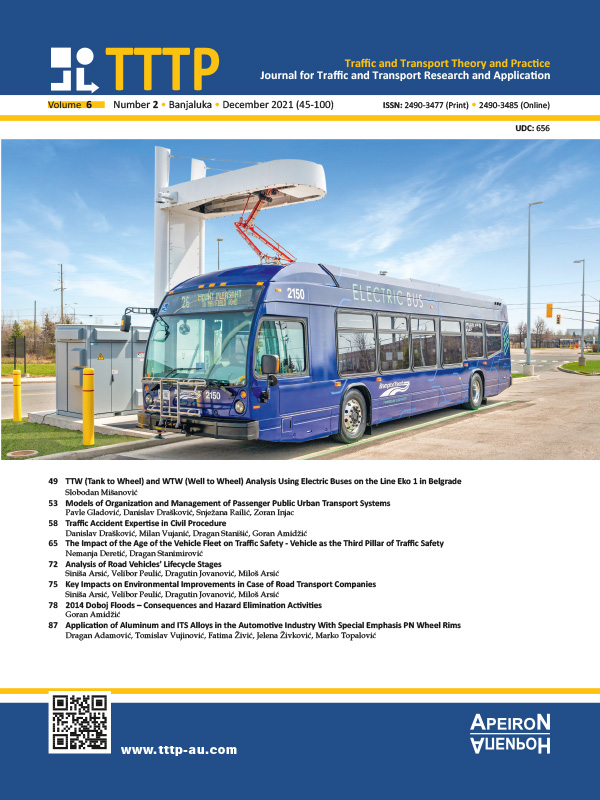TTW (Tank to Wheel) and WTW (Well to Wheel) Analysis Using Electric Buses on the Line Eko 1 in Belgrade
DOI:
https://doi.org/10.7251/JTTTP2102049MAbstract
The bus subsystem is the holder of the public transport function in many cities with a dominant representation of diesel-powered buses. In the last few years, electric buses (E-bus) have been increasingly used in many cities around the world (China, Europe, South America), making them the main alternative to conventional buses (diesel, CNG). The main advantages of using electric buses compared to conventional buses are higher energy efficiency, zero pollution emitted at the local level, more favorable carbon dioxide emissions observed at the regional or national level depending on the method of obtaining electricity, lower noise level. Since 2016, five electric buses have been operating in Belgrade on the EKO 1 line (Vukov spmenik-Belvil). The paper will present the environmental benefits of the use of electric buses observed through TTW (Tank to Wheel) and WTW (Well to Wheel) analysis, compared to diesel and CNG buses.
